Establishment of TUFS Area Studies Center 〜Interview with Center Director, Professor Tomonori Yoshizaki〜
研究室を訪ねてみよう!
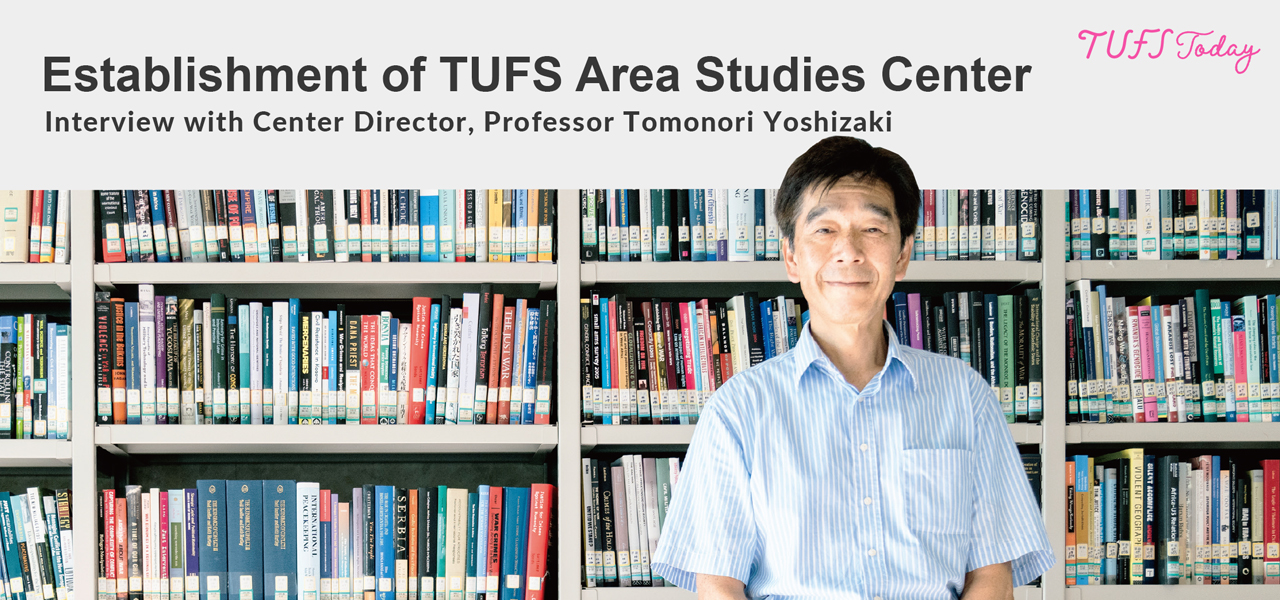
The TUFS Area Studies Center (TASC) opened in October 2023. Center Director, Specially Appointed Professor Tomonori Yoshizaki discusses the role that TASC should play and ideas for how to achieve this.
Our university specializes in research in a variety of regions, including the African Studies Center, the South Asian Studies Center, the International Center for Japanese Studies, and Peace and Conflict Studies (PCS). The role of the TUFS Area Studies Center (TASC) is to collaborate with these centers to disseminate research, knowledge, and information about various regions of the world. Although the official opening was in October, I wanted to commence as soon as possible, so TASC activities had already begun before the summer break at the open campus for high school students.
The strength of our university is the study of foreign languages as a base to learn about foreign countries and regions, and international social studies. TASC aims to become a bridge connecting various research areas and individual researchers. Researchers generally tend to focus on their own research, rarely having opportunities to interact with other researchers. This is why I hope that TASC can become a bridge between researchers and that we can build a place for everyone to exchange and interact.
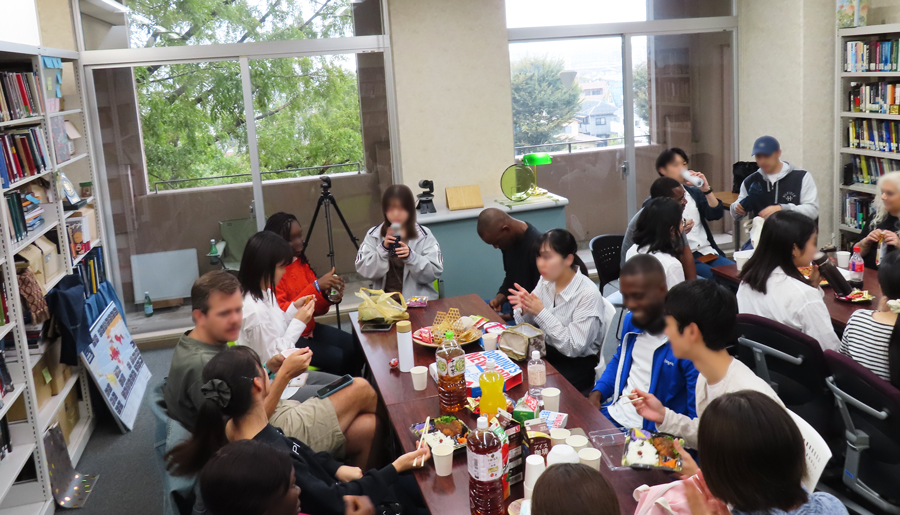
However, Japanese people may find it difficult to interact, even if asked to do so directly. Therefore, I am actively planning on incorporating “policy simulations” into TASC. A “policy simulation” is an activity in which participants are assigned roles based on a certain scenario, and they discuss how they should act or deal with the situation. Themes could be anything from the war in Ukraine to a hypothetical conflict in 2030. Discussions generally tend to become formal, but having a simulation where each participant is working on solving a problem from their own perspective allows everyone to use a different approach to share their opinions. At the open campus in July, we held a Ukraine War Simulation as a mock class, which was very well received.
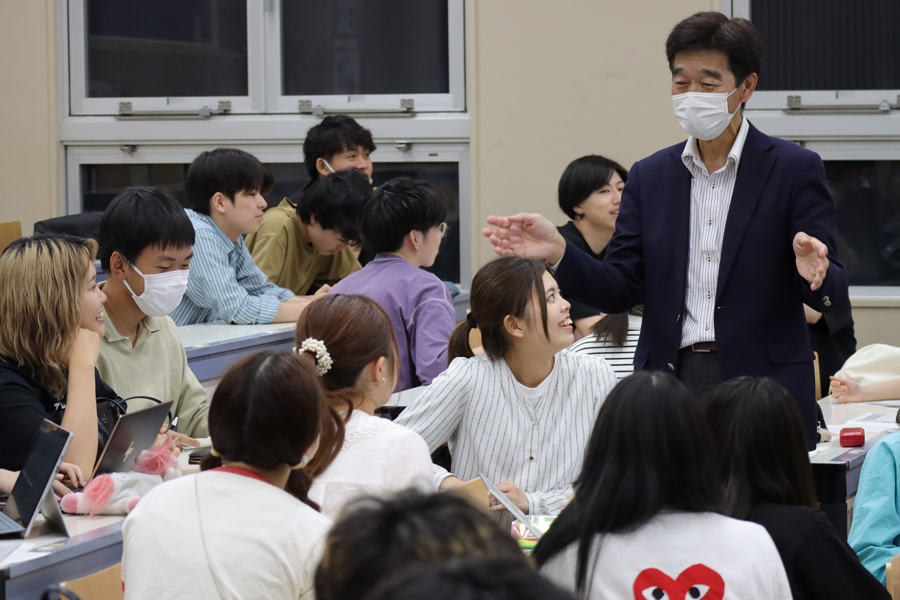
In fact, before I came to this university, I was professionally involved in conducting “policy simulations” with foreign countries and organizations for 7 years at the National Institute for Defense Studies at the Ministry of Defense. The purpose of the simulations at the National Institute for Defense Studies is to verify actual policies, so there are some aspects that are different when conducting these simulations in a university setting. However, one common aspect is that participating in simulations together provides a way to deepen interactions and exchanges between different positions and perspectives.
As I mentioned before, the role of TASC is to disseminate research and information about regional studies. However, I believe that this information will not be effectively communicated with society if we only disseminate our research results. Rather than focusing on disseminating information, I think that sharing ideas and thinking together will have a greater impact on society. “Policy simulation” is an extremely effective way for getting people to think together. Furthermore, there is no doubt that new perspectives and insights will emerge when experts interact seriously, and this will lead to an improvement in research quality which is very important for our university.
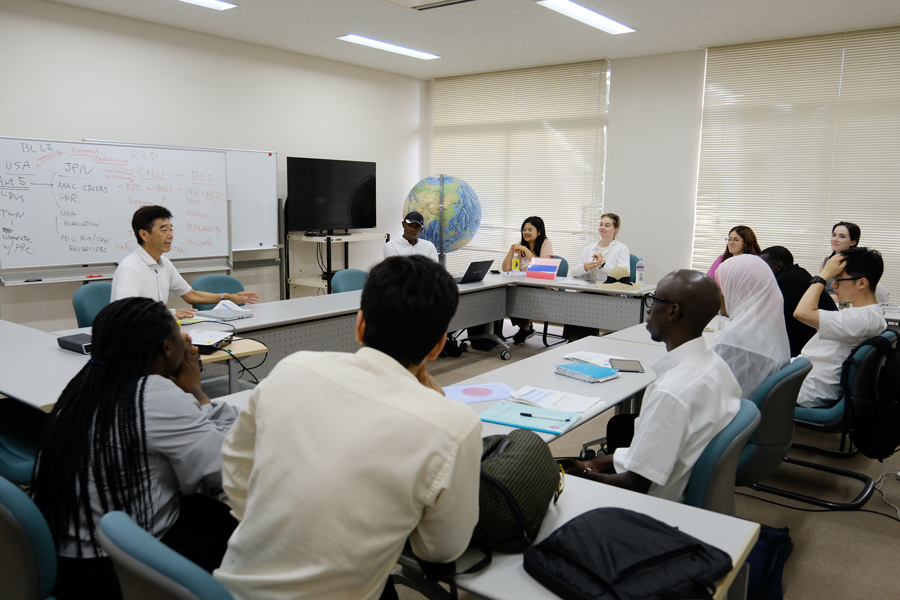
I am also considering inviting mass media to participate in these “policy simulations”. If they have the experience of participating in a simulation, I am sure that they will write an article about it. I am also planning “Library Talks” where media and researchers can talk about books they have written about regional and area studies. I hope to create a system where others can voluntarily share information about our university’s regional research and TASC.
The TASC Lounge on the 4th floor of the Research and Lecture Building has been created to serve as a base for TASC. The lounge holds around 3,000 specialized books about peacebuilding published between 2000 to 2010. There are many highly valuable and specialized books, such as those related to civil wars in Africa and Yugoslavia, so I hope our graduate students and faculty can actively use these resources.
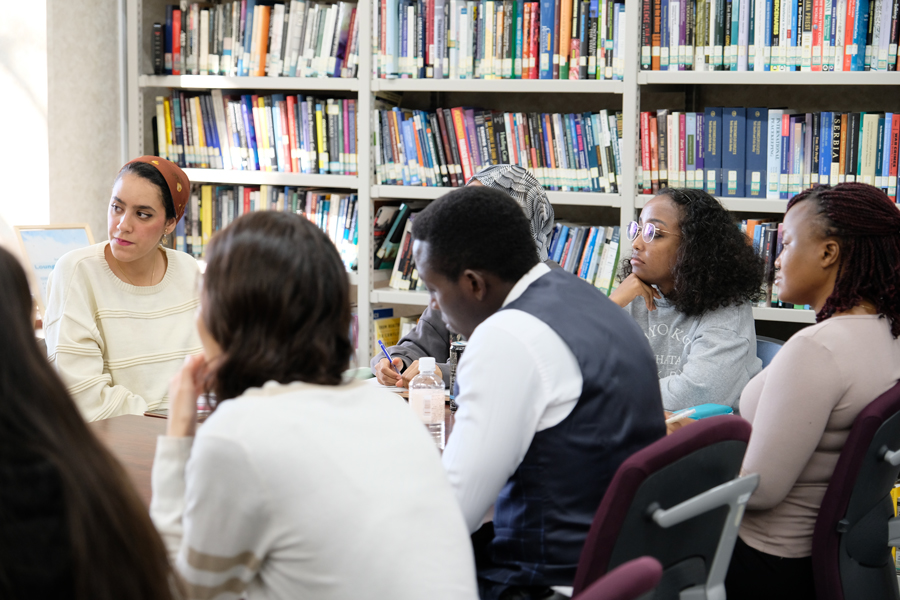
I wanted the TASC Lounge to be an open space so that as many people as possible can come and visit. If you come to the 4th floor, you will see that the lounge has large glass panels instead of walls so that you can clearly see the inside of the room from the hallway. In addition, you can also directly access the plaza on the 5th floor from the windows of the TASC Lounge. From the plaza, you can enjoy a panoramic view of the lush, green campus and the blue sky, which makes it a great place to feel refreshed when you’re tired of studying.
Experts and researchers will be able to interact naturally and share information using “policy simulations” and the TASC Lounge. I believe it is the role of TASC to continue to support this.
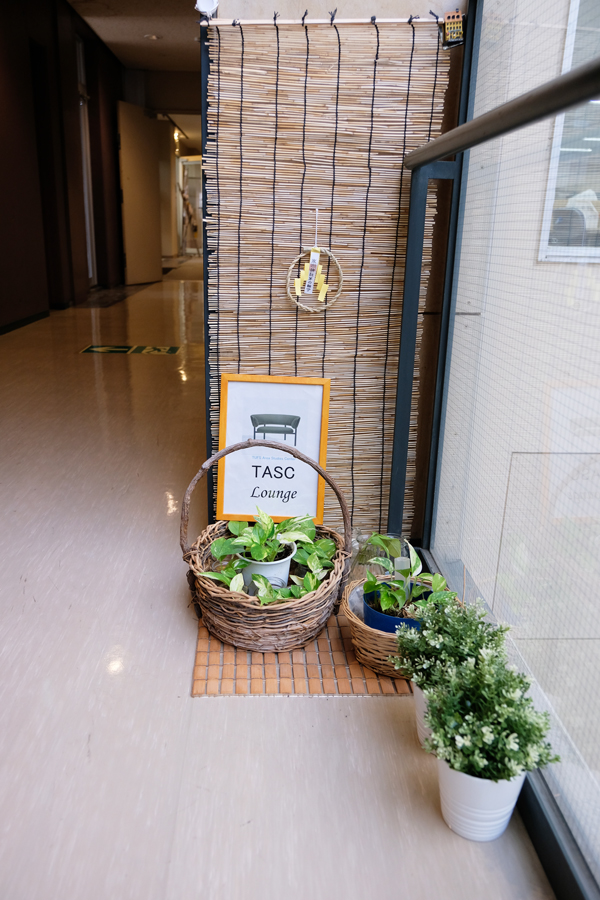
(From the Tokyo University of Foreign Studies Annual Report 2023)

